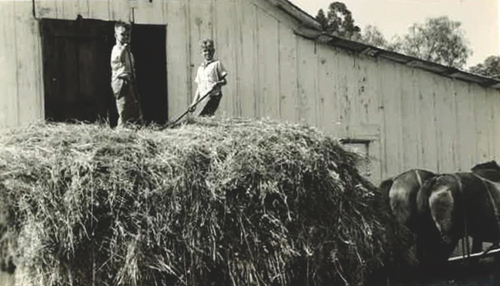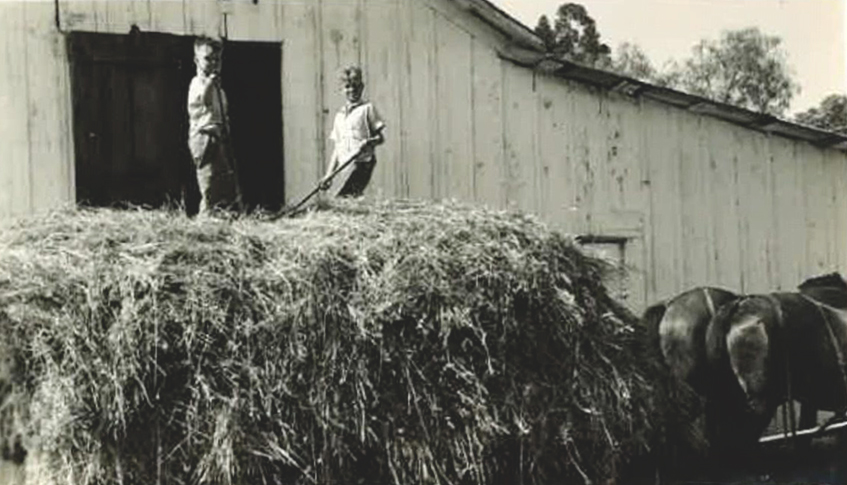
With a chemistry degree from UC Berkeley and a Masters from the University of Chicago, C. Frederick Andrews programmed theoretical physics computer models for Lawrence Livermore National Laboratory and Lawrence Berkeley National Laboratory. He retired at the age of 42 after receiving a small inheritance.
For four decades, he lived in Santa Cruz County and soon became a regular at the Arboretum. His niece Betsy Andrews speculated that he might have acquired his lifelong interest in plants from experiences on his parents’ Watsonville orchard.
Self-taught expert
An autodidact, he was an expert in the case law of gay marriage, and he was an amateur botanist. Andrews, who insisted on being known as “Fred,” was also an avid hiker and an excellent cook, says his longtime friend Charity Kenyon.
“Fred had a formidable exterior, probably because of his high level of intelligence — higher than all the rest of us in a room, combined,” says Kenyon (Merrill ‘74, community studies). “At the same time he was an amazing and generous teacher. And he could engage on just about any topic.”
Kenyon, who had a successful law career, was amazed at the detail of Andrews’ knowledge of certain cases.
“He would end up reading not just the decisions but the briefs and the cited cases and knowing much more about them than I ever did,” she says.
Outdoorsman
Kenyon’s husband, Mike Eaton (Merrill ‘75, American studies), would join Andrews on backpacking expeditions, which he undertook despite impairments resulting from polio.
“It was a challenge keeping up with him,” Eaton says. “He hiked with the intensity that he did everything else.”
He would take on challenging new projects and complete them with excellence. He made a backpack—complete with difficult, curved flat-fell seams—for his dog, Roderick, to carry his own food on backpacking trips. He built and learned to play a harpsichord.
When he discussed his estate plans with Kenyon and Eaton, they encouraged him to plan a bequest to the Arboretum.
“His enthusiasm for the UCSC Arboretum was infectious,” Kenyon says.
In his 80s, a long-term illness prevented him from visiting the Arboretum or hiking. When he died in 2018, at age 88, he left nearly his entire estate to the Arboretum.
